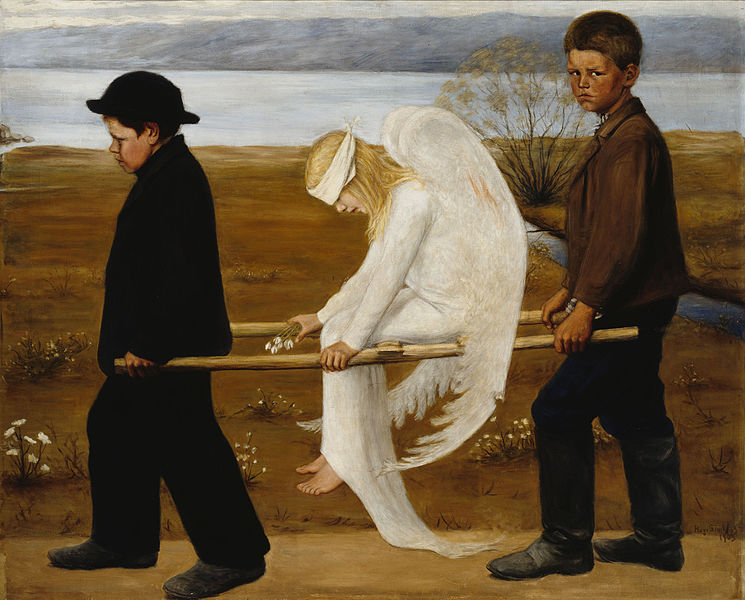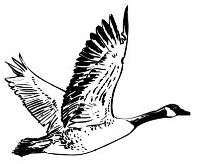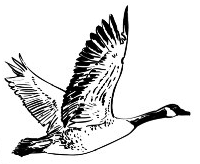|
Henry Morgan
This piece has been some time in its gestation, it’s something that I sense has been revealed to me over a period of time, and that it's now time to share it. I sense that there is truth in it. I might of course be wrong, or there might simply be bits of truth in it. So, I’d welcome your comments reader, on what I’m sharing here. (click 'Read More')
0 Comments
Henry's brother Pete considers the value of being 'feral' from his perspective, drawing on his practice as a social worker
As Henry’s brother, my “back story” is very similar to his, namely treading the academic treadmill of grammar school with “O” followed by “A” Levels followed by university – terminology that shows my age if nothing else! – in a family where we and our Mum were regular C of E worshippers and our Dad was a regular member of the local Quaker Meeting... I recently used Henry’s “Feral Christian” Paper as a discussion document at our recent Franciscan group meeting. The mere introduction of the concept seemed to provoke strong negative thoughts right from the outset. One member had come armed with a print-off from an American website by Dr.Jeff Myers, President of Summit Ministries, belittling “feral Christians” but written from the standpoint of “an educator and entrepreneur”.
I don’t know if I have gone off at a tangent or missed a point or merely revisited and rehearsed age-old musings but I have enjoyed reflecting on feral spirituality...
I’m a vicar who has worked in a beautiful part of northern England for over two decades. Every year I am required to take part in a ministerial development review (MDR), when I meet with either my local Bishop or Archdeacon. It’s an opportunity to talk about my progress in ministry, how my work is going, and who I am beyond parish life. Usually, it’s a helpful and painless process, but it does involve filling in forms. Fair enough. However, when you get to the end of the form, you are asked to come up with some priorities, as well as review progress on your priorities from last time....
When I began training for the priesthood the Church was still unwilling to accept women into this ministry. As a member of MOW (Movement for the Ordination of Women) we marched, raised our voices and eventually fought our way into the church. It had been a struggle for me in other ways too; not only was I a woman but a divorced one at that. Oh dear, the hoops I had to jump through but eventually I was accepted as an ordinand....
On holiday a few years ago I read a book by George Monbiot who writes for The Guardian on environmental matters. In it he makes an eloquent plea for the re-wilding of some of our moorland areas. But what drew me was the book’s title: Feral. I wasn’t sure why I was drawn in until I read his definition of ‘feral’ as being “in a wild state, especially after escape from captivity or domestication.” And then the lights came on....
I often go into Church buildings. They are usually calm, tranquil environments in which to reflect and/or meet and relate to other people - a social and spiritual space. Here can be found God and prayer. I spend significantly more time in other spaces and buildings which would be classified as 'secular'. They can also be peaceful and calm places to reflect and meet other people - a place to explore both oneself and others. Here can be found God and prayer and in this context I would also classify them as 'spiritual' places...
They say familiarity breeds contempt, but that’s too blunt a claim. Familiarity can also nurture love and nuance and wisdom. In the life of the regular churchgoer, a growing and reinforced familiarity with scripture and liturgy can foster depth and thoughtfulness, which – goes the theory – find an ever deeper expression in the world beyond the church...
The word ‘feral’ was initially a seed sown through conversations with Henry Morgan. My sense of being a ‘boundary-dweller’ through much of my ordained ministry as a parish priest, and as a spiritual director/mentor, persisted up to and beyond my retirement from full time ministry. My sense of person-centred vocation, in which I sought to recognise Christ amongst those I lived with, frequently felt to be increasingly at odds with the thinking and planning of the institutional Church. This is not a criticism of any particular individuals, but what I perceived to be a growing trend towards a management strategy that became more concerned with the institution’s own ‘salvation’ rather than the ‘care of souls’.
I suppose I took my first steps in being feral many years ago when I was a curate in my first parish and I took “Oh Sod It” days at times other than my day off just to get away and just BE. It might be going for a picnic or wandering a city centre: I would just get up knowing that I couldn’t face being dutiful that day...
There is little understanding amongst the christian community of the need that drives (or leads?) someone to the fringes of orthodox Christian community. For myself, a Christian of nearly 40 years and, for much of that time, an ‘upstanding member of the community’, I have found it surprising to discover the need for a more meaningful faith has led me away from the church. It seems that there came a point where it was impossible not to explore a spiritual path that was off the main highway...
A feral animal is one not now owned or controlled by anyone having returned to an untamed state from domestication. In human terms, it might be someone "abandoned by – or escaped from – society", "living outside the mainstream", "beyond the control of rules, regulations and accepted norms."...
"To my knowledge he never identified himself as practising feral spirituality, but I think the idea would have appealed. It was partly the closed and blinkered nature of the institutional Church that drove him and a handful of other young priests (along with their partners and wives) in the late 1950s to break with career expectations and prioritise simply living out Christian values in workplaces and working class communities, and seeing where the journey would take them."
Read more... |


 RSS Feed
RSS Feed
